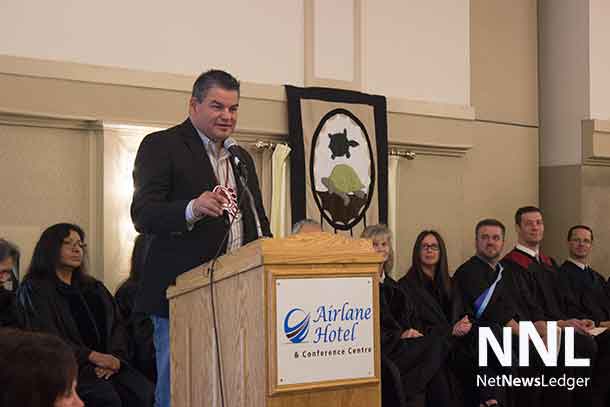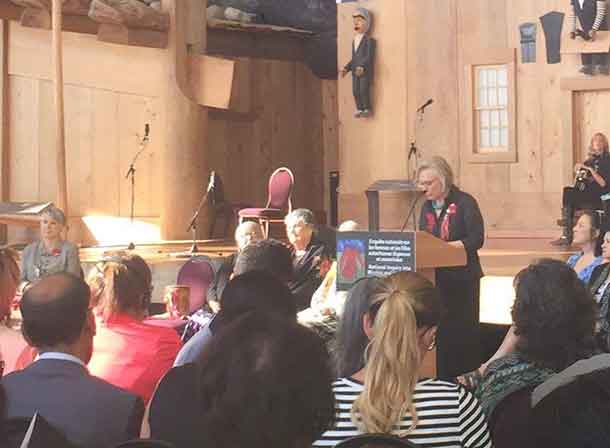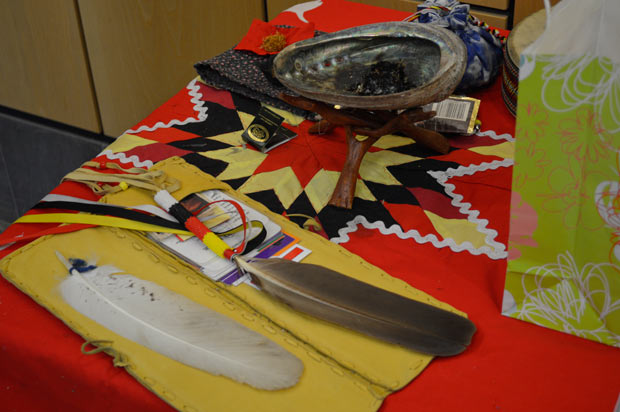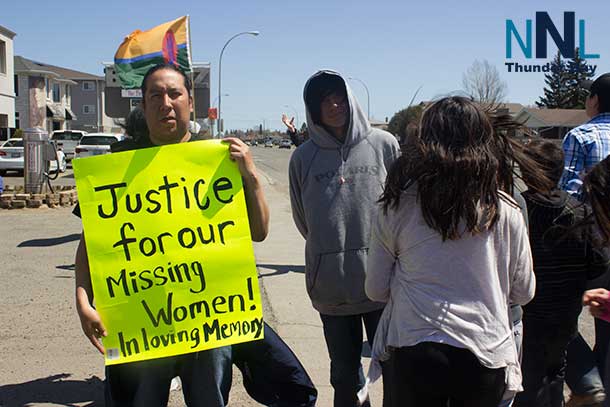
THUNDER BAY – “On behalf of the Chiefs of Ontario, I welcome the announcement of this long overdue inquiry into this national crisis and want to acknowledge the families, the women’s groups and the Indigenous organizations for taking the lead and pushed the federal government for an inquiry,” said Regional Chief Day. “The MMIW Inquiry’s mandate is slated to end in 2018 and in the meantime, we look forward to an interim report which should contain immediate recommendations and direct action. We will continue to adhere to the ‘Families First’ philosophy and look forward to working with and providing support to the commissioners and the regional liaison representatives.”
Ontario Regional Chief Isadore Day welcomes today’s announcement rolling out the much-anticipated Missing and Murdered Indigenous Women National Inquiry and says we must rally behind the commissioners and support the families in the critical work they will carry out over the next two years.
Indigenous Affairs Minister Carolyn Bennett, Justice Minister Jody Wilson-Raybould and Status of Women Minister Patty Hajdu unveiled the plan for the missing and murdered indigenous women inquiry this morning at the Canadian Museum of History in Gatineau, Que.
The government announced the five-person panel and the budget set at $53.86 million, topped up from the $40 million budget commitment. Justice Canada is also putting an additional $16.17 million over four years to create family information liaison units in each province and territory and to increase funding for culturally appropriate victims’ services. The inquiry will begin Sept. 1 and run until Dec. 31, 2018, at a cost estimated at $53.8 million.
The commissioners are: Marion Buller named chief commissioner and is British Columbia’s first female First Nations judge; Michèle Audette, leading women’s First Nations advocate, Innu francophone and former president of the Native Women’s Association of Canada; Qajaq Robinson, Ottawa-based lawyer specializing in Aboriginal issues and land and treaty claims, born in Nunavut; Marilyn Poitras, constitutional and aboriginal law expert at the University of Saskatchewan; Brian Eyolfson, First Nations and human rights lawyer, former vice-chair of the Human Rights Tribunal of Ontario.
“We have known for years what many of these recommendations should look like,” said Regional Chief Day. “Canada’s inquiry into murdered and missing Indigenous women and girls is a direct result of the generational impact of residential schools combined with today’s child welfare crisis, which stems from poverty and despair. I want this inquiry to examine the factors driving a systemic, high rate of violence against Indigenous women and girls and the role of justice institutions like police forces and coroners’ offices.”
Chief Ava Hill of the Six Nations of the Grand River agrees adding it must also include men and boys and the impact on families in First Nation communities. “If we are to take a non-discriminatory approach and are genuinely concerned with helping all victims of violence and homicide, then we need to support the families as they get involved in the process which should include men and boys. And by strengthening the support in our communities, we will be doing our part to help bring this national tragedy to an end.”
Some families and advocates expressed disappointment the announcement makes no specific mention of police investigations, an issue that came up at all 17 pre-inquiry consultations held earlier this year. A 2015 United Nations report found that young First Nations, Métis and Inuit women were five times more likely to die under violent circumstances than their non-Aboriginal counterparts.
“As the inquiry will seek to accomplish the development of strong recommendations, many feel that it will not attempt to seek justice for specific cases or correct an investigation to a case gone cold,” said Regional Chief Day. “Our families and First Nations must have an oversight and advocacy process that will seek justice immediately. Many cases where police agencies are in question must not be lost along this path. We must continue to seek to have these justice mechanisms built into the process.”






